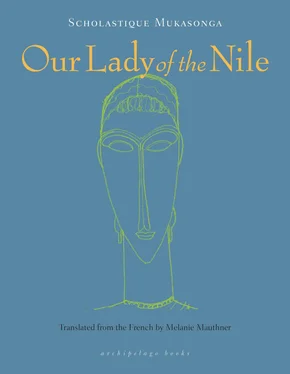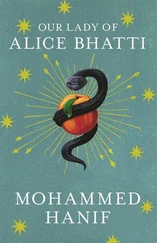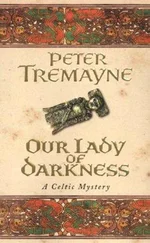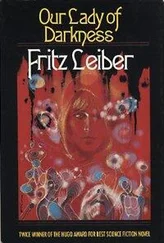It was clear to everyone that Frida was with child, indeed she didn’t try to hide it. She was proud to be pregnant, despite the shame it would bring on her family, what with her not being married.
“His Excellency, my fiancé, wants a boy, he’s only had girls till now: me, I’ll be having a boy.”
“So, he’s got other women then?” suggested Gloriosa.
“No, he doesn’t, not at all,” Frida said to reassure herself. “They’re either dead or he rejected them.”
“And how do you know you’ll have a boy?”
“Balimba took every precaution this time. He went to consult a great soothsayer in the forest. It cost him a fortune. The soothsayer told him that to cheat the curse his enemies had cast on him, and which made him father only girls, he should wed a girl from the other side of a lake beneath the volcanoes, for the evil spell of the Zairian poisoners would be useless against her. He gave Balimba all the necessary talismans to beget a boy, all the dawa whose secrets he knew, for him and for me. I have to wear a belt of pearls and seashells around my belly. It’s to have a boy. My fiancé is sure I’ll give birth to a boy.”
“You should ask Father Herménégilde to bless your belly,” said Godelive, “I think he, too, knows every prayer to have babies, or above all, not to have them.”
Frida’s condition soon worsened, she didn’t want to get up, and she complained about agonizing stomach pains. Mother Superior grew anxious and appalled at having to house a pregnant girl in her lycée whose marriage had yet to be celebrated according to the sacraments of the Church. “It’s a sin, it’s a sin,” she repeated to Father Herménégilde, who tried in vain to calm her nagging scruples: “They’re engaged, dear Mother, they’re engaged; and I’ll receive Frida at confession, I will absolve her.” Yet Mother Superior couldn’t stop her lamentations: “But, Father, have you considered the other innocent pupils? The lycée of Our lady of the Nile will turn into a home for teenage mothers. Oh, the scandal! The scandal!”
Mother Superior sent message after message to the ambassador, begging him to fetch Frida right away, each time exaggerating the urgency and gravity of her state a little more. Balimba finally dispatched a powerful Land Rover, which managed to drive along tracks hitherto considered impassible to any vehicle, and succeeded in reaching the lycée and taking Frida back to Kigali.
News of Frida’s death plunged the lycée of Our Lady of the Nile into considerable disarray. Mother Superior decreed a week of mourning to pray for Frida’s soul, and at the end of it, on Sunday, the whole school went on a pilgrimage to Our Lady of the Nile so she might shelter that poor little soul beneath her great mantle of mercy. Father Herménégilde decided to give a Mass every morning that week, to the same end. Each class had to attend, one after the other. And the presence of the senior class was of course compulsory at every one. In his funeral oration, Father Herménégilde suggested in passing that the deceased had sacrificed her purity and her youth for the sake of the majority people. Yet neither he nor Mother Superior could hide a certain relief. After all, the drama hadn’t occurred within the lycée. Frida’s death, as regrettable as it was, put an end to the scandalous example set by tolerating the presence of a pregnant pupil at the school. Allusions to a possible divine punishment having been visited upon the sinful girl were prudently woven into Mother Superior’s consoling words to the pupils, and above all in Father Herménégilde’s endless moral reflections in religion class.
The seniors remained shut up in their dorm for a whole day — nobody would have dreamed of forcing them to leave it — and, as custom dictated, set to weeping and wailing as one voice. The clamor of their sobbing filled the lycée, the ceaseless tears proof of the sincerity of their sorrow, a remonstration against Frida’s undeserved fate. All the girls were united in their despair at being women.
Then the rumors started. What did Frida die of? Why? How? Who had caused her death? The official version made out it was due to complications following a miscarriage. The vehicle driving her back to Kigali must have taken paths that were in poor condition — did the jolts bring it on? In that case, weren’t Mother Superior and the ambassador slightly responsible? Why hadn’t they waited for the track to be reopened? It was just a matter of days. Or else it was that white food, that part of a sick bird’s stomach that Frida gulped down so greedily, that’s what poisoned her and her baby. Many thought she’d obviously been poisoned, but not by the white food, by poisoners, Rwandans no doubt. It was easy to understand: Balimba’s enemies had her trailed to Kigali, then they paid Rwandan poisoners, abarozi ; they paid them a fortune, those abarozi , an absolute fortune — they’re prepared to poison anyone if you give them what they ask, it’s their job, they’re much more powerful than the Zairian sorcerers and their dawa . And also, maybe Frida’s ancestors weren’t entirely Rwandan, maybe they came from Ijwi Island, or from Bushi, on the other side of the lake … So, Balimba …
“What I think,” said Goretti, “is that her own family killed her, without meaning to of course, by making her abort. That’s what would have happened where I’m from. A girl can’t get married if she’s pregnant or has a baby on her back, even if she’s a servant. It brings dishonor and shame on her and her whole family, she’ll draw all kinds of bad luck to them. It’s better if the child never existed. So they found a doctor, a bad doctor, it’s only bad doctors who perform abortions, or maybe a male nurse, or even worse some doula who made her drink a medicine that causes you to abort or kills you … poor Frida! But if what I’m saying is true, Frida’s family is right to be scared, for Balimba will take terrible revenge if he’s convinced Frida was carrying a boy.”
Ambassador Balimba requested his transfer and got it fast. He was posted as part of the Zairian delegation to the Organization of African Unity in Addis Ababa. Frida’s father gave up his diplomatic career and threw himself into business. They say he’ll do very well at it …
“That’s enough,” Gloriosa said. “I think we’ve shed enough tears for Frida. We shall mention it no more, either between ourselves or to others. It’s time we remembered who we are and where we are. We are at the lycée of Our Lady of the Nile, which trains Rwanda’s female elite. We’re the ones who’ve been chosen to spearhead women’s advancement. Let us be worthy of the trust placed in us by the majority people.”
“Gloriosa,” said Immaculée, “do you think it’s already time for you to give us one of your politician-type speeches? Like we were at a rally? Women’s advancement, well let’s talk about that! The reason most of us are here is for our family’s advancement, not for our own future but for that of the clan. We were already fine merchandise, since nearly all of us are daughters of rich and powerful people, daughters of parents who know how to trade us for the highest price, and a diploma will inflate our worth even more. I know that a lot of girls here enjoy this game — it’s the only game in town, after all — and it’s even the source of their pride. But I no longer want to be a part of this marketplace.”
“Just listen to her,” jeered Gloriosa, “she’s talking like a white girl in the movies, or in those books the French teacher makes us read. Where would you be, Immaculée, without your father and his money? Do you think a woman can survive in Rwanda without her family, first her father’s then her husband’s? You’ve just come from the gorillas. I suggest you go back there.”
Читать дальше












